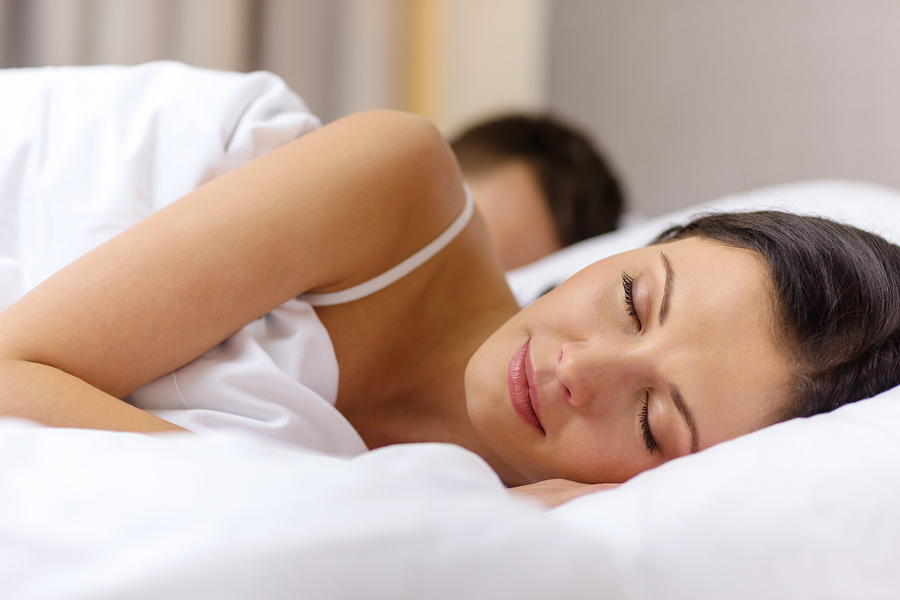Aspire Hospital’s Department of Sleep Diagnostics offers the following information on the importance of quality sleep.
When you sleep, your body rests and restores its energy levels. However, sleep is an active state that affects both your physical and mental well-being.
A good night’s sleep is often the best way to help you cope with stress, solve problems, or recover from illness.
What Happens During Sleep?
Sleep is prompted by natural cycles of activity in the brain and consists of two basic states:
- Rapid eye movement (REM) sleep
- Non-rapid eye movement (NREM) sleep
During sleep, the body cycles between non-REM and REM sleep. Typically, people begin the sleep cycle with a period of non-REM sleep followed by a very short period of REM sleep. Dreams generally occur in the REM stage of sleep.
What Is Non-REM Sleep?
The period of NREM sleep is made up of stages 1-4. Each stage can last from 5 to 15 minutes. A completed cycle of sleep consists of a progression from stages 1-4 before REM sleep is attained, then the cycle starts over again.
- Stage 1: Polysomnography {sleep readings) shows a reduction in activity between wakefulness and stage 1 sleep. The eyes are closed during Stage I sleep. One can be awakened without difficulty, however, if aroused from this stage of sleep, a person may feel as if he or she has not slept. Stage 1 may last for 5 to 10 minutes. Many may notice the feeling of falling during this stage of sleep, which may cause a sudden muscle contraction (called hypnic myoclonia).
- Stage 2: This is a period of light sleep during which polysomnographic readings show intermittent peaks and valleys, or positive and negative waves. These waves indicate spontaneous periods of muscle tone mixed with periods of muscle relaxation. The heart rate slows and the body temperature decreases. At this point, the body prepares to enter deep sleep.
- Stages 3 and 4: These are deep sleep stages, with stage 4 being more intense than Stage 3. These stages are known as slow-wave, or delta, sleep. If aroused from sleep during these stages, a person may feel disoriented for a few minutes.
During the deep stages of NREM sleep, the body repairs and regenerates tissues, builds bone and muscle, and appears to strengthen the immune system. As you get older, you sleep more lightly and get less deep sleep.
Aging is also associated with shorter time spans of sleep, although studies show the amount of sleep needed doesn’t appear to diminish with age.
What Is REM Sleep?
Usually, REM sleep occurs 90 minutes after sleep onset. The first period of REM typically lasts 10 minutes, with each recurring REM stage lengthening, and the final one may last up to an hour. Polysomnograms show brainwave patterns in REM to be similar to that recorded during wakefulness.
In people without sleep disorders, heart rate and respiration speed up and become erratic during REM sleep. During this stage the eyes move rapidly in different directions. Intense dreaming occurs during REM sleep as a result of heightened brain activity, but paralysis occurs simultaneously in the major voluntary muscle groups. REM is a mixture of encephalic (brain) states of excitement and muscular immobility. For this reason, it is sometimes called paradoxical sleep.
The percentage of REM sleep is highest during infancy and early childhood. During adolescence and young adulthood, the percentage of REM sleep declines. Infants can spend up to 50% of their sleep in the REM stage of sleep, whereas adults spend only about 20% in REM.
How Much Sleep Do You Need?
The amount of sleep a person needs depends on the individual. The need for sleep depends on various factors, one of which is age:
- Infants usually require about 16-18 hours of sleep per day
- Teenagers need about 9 hours per day on average
- Most adults need about 7-8 hours of sleep per day
The amount of sleep a person needs also increases if he or she has been deprived of sleep. People do not seem to adapt to getting less sleep than they need.
What Are the Consequences of Too Little Sleep?
- Impaired memory and thought processes
- Depression
- Decreased immune response
Sleep deprivation also magnifies alcohols effects on the body, so a fatigued person who drinks will become much more impaired than someone who is well-rested. Caffeine and other stimulants can temporarily overcome the effects of severe sleep deprivation, but cannot do so for extended periods of time.
For more information, please call our Department of Sleep Diagnostics at (936) 293-8883.

